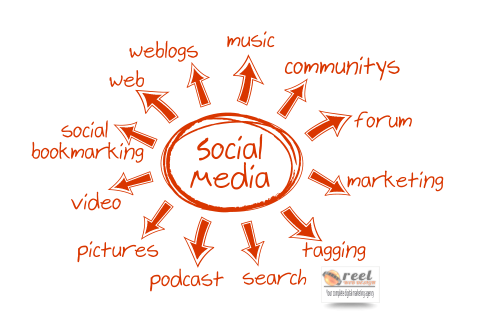 Social media has become so deeply entrenched in our society that it’s almost impossible to remember a time where we weren’t checking Facebook every ten minutes or posting all of our dinners to Instagram. Social media has (in theory) brought us all closer together and has made our world a significantly smaller and more convenient place. But has it improved how we communicate with one another or has it distanced us from each other in a strange and profound way? Making communication via social media almost a surrogate for real, face-to-face conversation? There are two schools of thought on the matter and in this article we intend to explore both of them.
Social media has become so deeply entrenched in our society that it’s almost impossible to remember a time where we weren’t checking Facebook every ten minutes or posting all of our dinners to Instagram. Social media has (in theory) brought us all closer together and has made our world a significantly smaller and more convenient place. But has it improved how we communicate with one another or has it distanced us from each other in a strange and profound way? Making communication via social media almost a surrogate for real, face-to-face conversation? There are two schools of thought on the matter and in this article we intend to explore both of them.
The Positives
Always available – Considering more than half of the western world now owns a smart phone or tablet, nearly all of us are constantly ‘on’, which means we’re always available and within reach. For most of us this is a good thing.
Workplace convenience – Social media in the workplace will make it far easier for employees to form friendships with one another and make lasting bonds with their clients.
Everything in its right place – The majority of social media platforms will now include options for collating all of your other social media profiles into one place so that communication between all platforms (email, SMS messaging, Facebook, Linked In etc. etc.) is seemless and convenient. Certain ‘apps’ such as the incredibly popular ‘WhatsApp’ also allow users to open ‘group conversations’, which means that creating separate groups for your friends, family and work colleagues is as simple as filling in a few boxes.
Connection – The sheer convenience of being able to link to information and access it in an instant is one of the primary reasons why social media has really taken off in the last ten years. Of course many might decry this constant connection as a negative point as could make it harder to distance ones self from their work lives when at home and vice verse. But the great thing about laptops, smartphones and tablets is that they can always be switched off!
Visuals – It has been proven that we respond more actively and positively to visual stimulus and sites such as ‘Flick R’ and ‘Instagram’ rely specifically on images to relate a message. The instantaneous nature of these sites can only be a good thing as it cuts through a lot of the ‘noise’ and gets to the point in an immediate and cathartic way.
Getting to the point – Especially with sites such as Twitter, which limit the amount of characters available per message, social media has made us all ‘get to the point’ with our communication. This means there is less pointless, protracted ‘small talk’ in modern communication in general.
Teaching – As a teaching tool, social media is still flexing its muscles but the potential is unmistakable.
The Negatives
Cyber bullying – A genuine problem that is endemic amongst all social media platforms and has resulted in a genuinely shocking amount of teenage suicides. Ten, even five years ago, schoolyard bullying generally began and ended just there, in the schoolyard. But social media has given vindictive, shallow minded and hateful children the platform to make the bullying a perpetual problem that follows victims home after school and into the weekend.
Quantity over quality – The amount of ‘spam’ advertisements that seep through social media platforms on a daily basis is infuriating but necessary as it’s this spam that keeps the sites free to use. However being bombarded with so much information makes it more difficult for us to see the wood for the trees so to speak and we can end up being pulled into a spiral of links that can bleed hours out of our lives.
Innocence – The internet in general is stealing the innocence from our children and social media is one of the primary facilitators of this loss. Twenty years ago, it would have been almost impossible for our young children to gain access to excessively violent material or hardcore pornography but in the 21st century, any child with even a cursory amount of internet savvy will be able to access stomach turning, potentially mind altering material with next to no hassle at all and social media provides a perfect platform from which to spread such inappropriate material.
Who are we talking to? – Social media allows its users to hide behind a veil of illusion which they can decide to stay behind indefinitely is they so choose. This is potentially damaging as it could cause certain individuals to grow more introverted and isolated as they delve further into these fantasy ‘personas’.
Conclusions
Ultimately, whether or not social media has improved or detracted from how and why we communicate with one another depends very much on your own opinions and your own experiences. It is irrefutably here to stay though, so on whichever side of the fence you choose to sit, you better get comfortable!
Because of social media we are much more connected which can be a blessing and a curse. It is important to allow people privacy and not abuse it, if you’d like to find more information please visit Insignia.